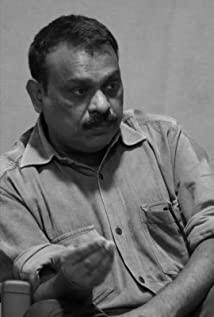"Emerging into a Spy" is a very special work, because there are few spy films that make people think deeply after watching it.
The film is adapted from the novel "Call Simat" and tells the thrilling story of an Indian girl sneaking into Pakistan as an undercover agent.
The story takes place on the eve of the Third Indo-Pakistani War in 1971. As India supported the separatist forces in East Pakistan (later Bangladesh) and angered the Pakistani government, the war between the two countries was looming.
Hidayat, a Kashmiri businessman, has always been close to the high-level Pakistani military, but his real identity is an Indian spy. After finding out that he was suffering from lung cancer, he decided to take his only daughter, Saimat. , Married the youngest son of a Pakistani military officer whom he knew well, so that she could continue his unending undercover career in Pakistan.
Semat is a sensible and well-behaved girl. Under the dual mission of the daughter's inheritance and patriotism, she agreed to her father's request without hesitation.
She said firmly,
She expresses her sacrifice for the country, but in fact, she is a kind girl who dare not kill even small animals. She doesn't know what the war will make herself sacrifice.
The subsequent plot is more routine.
Under the training of the rigorous officer, the fragile girl Semat quickly grew into a first-class agent, and later married to Pakistan, and completed the transmission of important information many times.
During this period, some thrilling and tense links are indispensable. The race against time telegrams, clever use of various props, burqa disguise, secret language connectors... fully embodies Semat's wit, bravery, and of course her patriotic passion.
In short, all the things that a spy war film should have, "Spyware from a Feather" basically has it, but it lacks one thing-the consciousness of enemy and self.
A strong sense of friend and foe can be said to be one of the most distinctive signs of spy war films, because under this kind of consciousness can we differentiate between good and evil, and then form the narrative logic and context that we are most familiar with.
But in "Sweet Feathers", this is not there.
The family of Pakistani military officers who were supposed to be the "enemy" has been portrayed as a group of amiable people. They opened their arms and greeted the bride with a "ghost" fetus, Semat, hoping to use their enthusiasm to dissolve her anxiety. Semat found that he was not in the nest of the enemy in the imagination, but a father and son. Like her big family of filial piety and concubine, harmonious and full of warmth, they also love their country sincerely.
Husband Iqbal is a young man who makes the girl's heart beat.
He is not only tall and handsome,
Also very gentlemanly. Because it was an arranged marriage, the two had never met before. On the night of the wedding, Iqbal did not rush to have sex with Semat, but chose to go to the sofa to sleep alone. For the sake of her privacy, he even set up a screen intimately.
Iqbal is very interesting and likes music, especially jazz. When I learned that Semat likes Indian classical music, I immediately bought a disc and enjoyed it with her. When Semat was sad because of his father's death, Iqbal became an incarnation again. A caring little partner, accompany you, and give your mother's relic-a beautiful anklet, which he personally wears for Zermatt.
Where is the "enemy", it is a perfect lover at all.
And Zermatt, who was supposed to be the "me" side, is also very incompetent. Although she was influenced by her father’s patriotism since she was a child, it has not become her ultimate belief. Above patriotism, she still has the simplest conscience. She does not like killing. In order to save the little squirrel, she can risk her life and become a chief. Informed her that during the mission, if necessary, she hesitated when she chose to kill.
This person is very similar to Desmond, who was determined not to take the gun to the battlefield in "Blood Wars in Hacksaw Ridge". However, Desmond accepted the test of life under artillery fire, and Zermatt encountered more entangled feelings. test.
The care of her mother-in-law's family made Semat more or less affectionate for every member of the family, and the warmth of her husband Iqbal's offensive also made her quickly surrender her heart.
When Iqbal bought her a dish, Semat also prepared his favorite snacks. When Iqbal put on an anklet for her, Semat offered her lips and made love. The thing that the world loves to do.
The reason for this situation is not that Semat is not firm in will, but that there is no hatred in her heart.
Semat loved India, but never hated Pakistan. When she saw the "Crush Indian" on the Pakistani military car, she even showed a dazed expression. Obviously, this expression of hatred made her feel strange. And confused.
She wants to protect her country, but she has no intention of harming others.
Having feelings for the Iqbal family is just the simplest reflection of thinking. When others treat me well, I have to treat others well.
This is a "me" who does not hate the "enemy" and does not want to kill the "enemy".
Such "enemy" and "I" can't distinguish each other at all, let alone establish the opposition between righteous and evil. To be precise, "Spyware" only portrays two groups of ordinary people opposed by the war, not the enemy or the enemy.
In this way, the audience can't team up emotionally, so the second half of "Turn Feather into a Spy" does not have the delights and hatreds often found in spy films, only endless worries, because watching two groups of people who have no enemy or good and evil each other Fighting is bound to be painful.
With the increase in the number of actions, Semat’s identity gradually became exposed. Soon she faced a situation where she needed to kill people. Under the guidance of patriotism, she cleanly killed two people-the steward and Uncle son, but afterwards began to be in endless guilt and self-blame.
If the butler was killed, it was only condemned for killing innocent people. Killing the eldest man would make Saimat experience intense emotional torture. When she looked at the concubine who was expecting her husband to come home, she felt extremely guilty.
At the funeral of the uncle, looking at the distraught family, she couldn't help but shed sad tears.
Thinking back to the scenes of his murder and the painful expressions of his family, Zermatt could not stop crying.
However, the crisis of the situation did not give Semat too much time to lick her wounds. It didn't take long for her husband Iqbal to discover her identity as a spy.
After the amorous man learned the truth, he washed his face with cold water in the toilet sadly, and when he walked out of the toilet, he was greeted by Saimat who pointed a gun at him.
The woman held a gun and kept saying that she would sacrifice everything for the country, but she couldn't stop her tears. The man desperately explained the tragic ending that the two would die together, and asked with unwilling trembling:
This is the most worrying moment of the film, vividly showing the violent tearing of emotions caused by war, especially when this tearing occurs between people who love each other, it becomes more heartbroken.
It was also at this moment that Semat realized that what he was about to sacrifice was not to lose his life as originally thought, but to violate his conscience and hollow out his feelings-these things are far more precious than life.
After Zemat’s escape, Iqbal said:
There is sentimentality and understanding in the words, because he knows that he will also be in the same situation-sacrifice love and capture Semat.
It is not only Semat and Iqbal who violated his conscience and emptied his feelings.
Because there is no winner in the war, only both loses.
Later, the chief of Zermatt decided to sacrifice her for the sake of the overall situation. As a result, both Iqbal and Zermatt’s colleagues were killed. After witnessing all this, Zermatt nearly collapsed. She desperately asked this who had nurtured her. Sir,
The reply I got was:
Zermatt suddenly realized that what he faced was not a patriot, but a war fanatic and a hater, and all his patriotic actions resulted in the trampling of life, the rupture of emotions, and the destruction of conscience. , Mental torture, nothing else of value, this is not her original intention at all.
At the end of the film, India, thanks to the intelligence provided by Zermatt, took the lead in the war, preempted and won victory. However, looking at the enthusiastic celebration news on the TV, Zermatt looked dazed, and "enemy" was lying in her belly. "The child, and she decided to give birth to it.
Semat is undoubtedly the hero of India, but she has no heroic tragic and majesty, only bleak sadness. She has won victory, but she has no joy at all, because war is war, it is cruel, it is ruthless, it is cold-blooded, it is not a creation. God's place is not a stage for realizing personal values. It is a meat grinder that will hurt you physically and mentally.
Under the garb of the spy war film "Spyware", there is actually a sharp anti-war spirit. Its vague dividing line between the enemy and the enemy raises strong doubts about the patriotism that has always been promoted. Is it possible to do whatever it takes to patriot? When ignoring life, destroying conscience, and betraying feelings in the name of patriotism, how much justice will remain?
And war, without a doubt, has always been an abomination, even if it is a patriotic war. As former US President Hoover once said, "Whether you have to fight for justice or not, war is a crime!"
——————————————————————————————————————
To see more reviews about Indian movies, please subscribe to the public platform "Indianmovie".
View more about Raazi reviews











